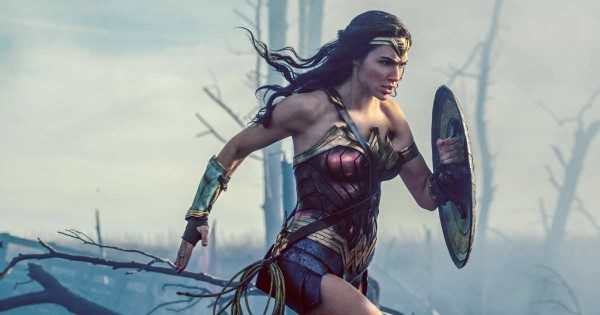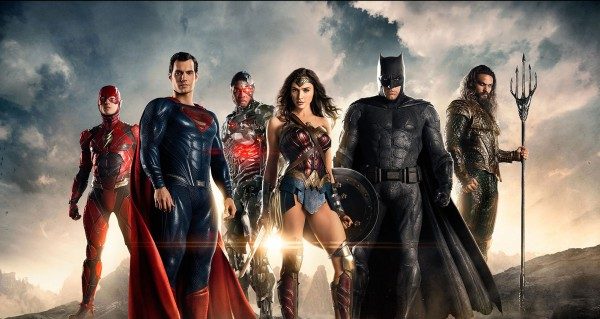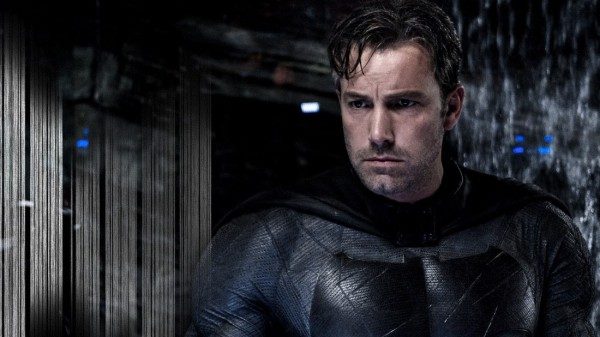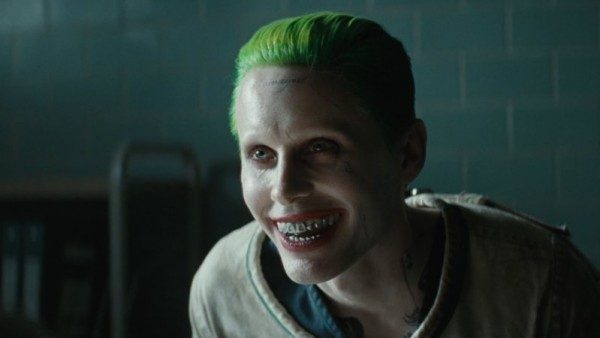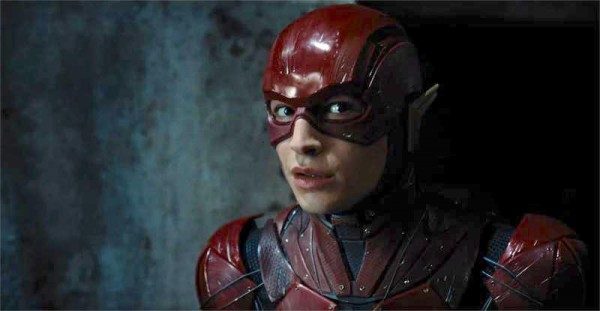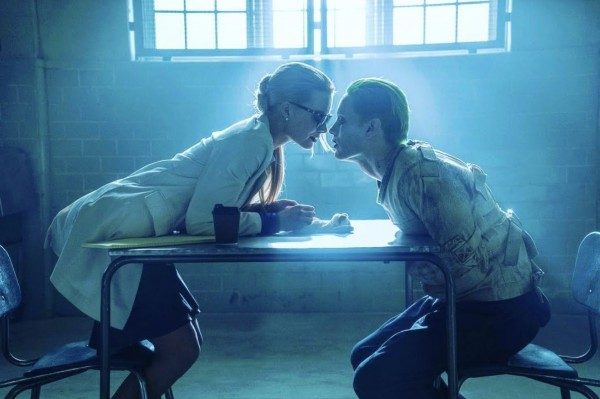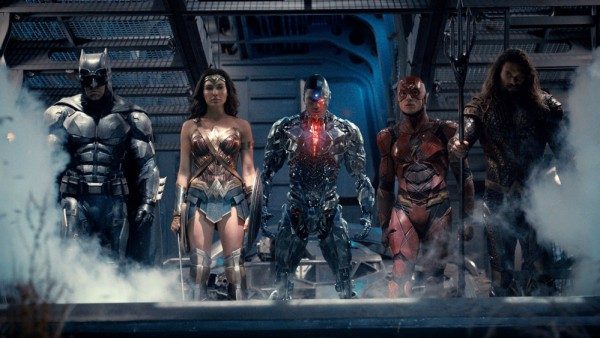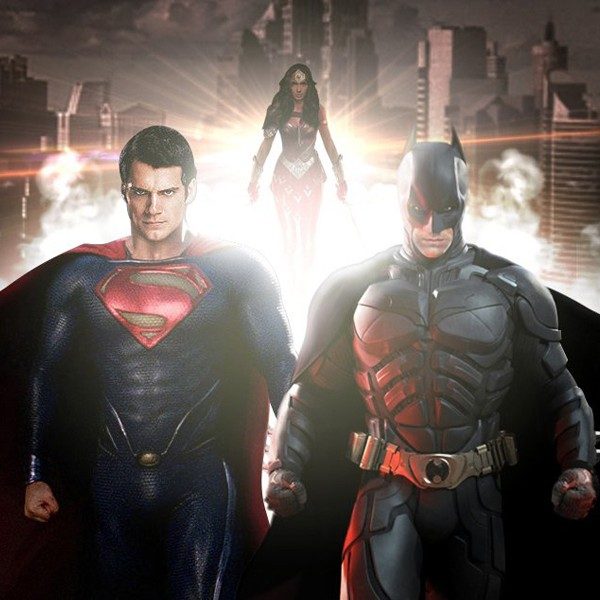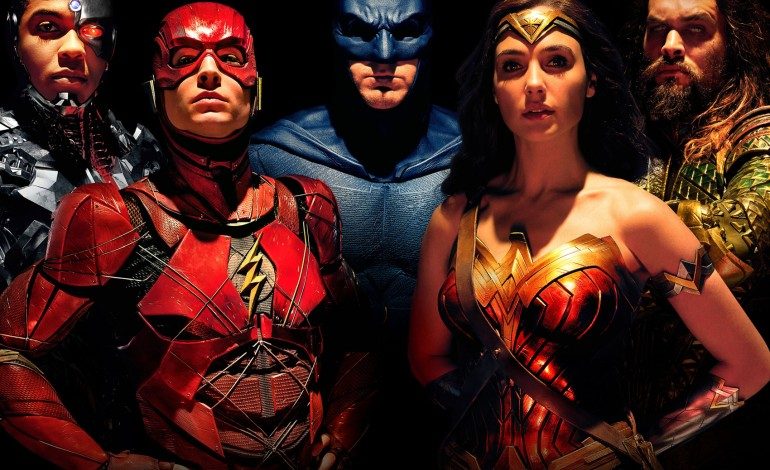

Superhero films may dominate the blockbuster landscape today, and fans certainly tend to draw a firm line in the sand when it comes to the longstanding rivalry between comic book publishers Marvel and DC. But if Marvel Studios’ carefully-coordinated and intricately-interconnected film and television properties serve as a powerful testament to the beauty of well-laid plans, then DC Entertainment’s comic book offerings can best be described as an interesting exercise in improvisation.
Marvel, after kicking off their cinematic superhero universe with 2008’s Iron Man and tacking on a brief sequence at the end of the film hinting at a future superhero team-up, spent the next several years introducing characters like Thor and Captain America with individual solo films. This allowed them to build the audience recognition required to pull off satisfyingly rewarding ensemble pieces such as The Avengers and Captain America: Civil War.
DC Entertainment and Warner Bros. Pictures, understandably, were eager to hop onboard the universe-building ship following the culmination of their highly-successful Dark Knight franchise helmed by Christopher Nolan. They started things off with 2013’s Man of Steel, a dark re-telling of the Superman story that earned a lukewarm reception. From there, perhaps in an effort to play catch-up with Marvel, DC launched immediately into their first team-up film, Batman v Superman: Dawn of Justice, which tossed Ben Affleck’s Batman and Gal Gadot’s Wonder Woman into the mix without any sort of introduction. According to audience reactions and critical reception, the result was just as chaotic and messy as one might expect, but since then, DC has continued to forge ahead with its so-called DC Extended Universe, dropping the ball again with the wildly hyperactive and inconsistent Suicide Squad, and then scoring an exceptional success with this summer’s Wonder Woman.
While Marvel has admittedly had its fair share of weak offerings sprinkled among its successes, DC’s track record has displayed a curious tendency to impulsively experiment and forego time-consuming universe-building in favor of frequent unexpected character pairings and buzzworthy casting choices. All of this frantic experimentation seems to have come to a head, however, over the past couple of weeks. Just as Marvel releases its long-anticipated Netflix television team-up event The Defenders, a series seamlessly connected to its movie universe, an almost unbelievable combination of strange rumors and jarring official reports from DC Entertainment are worrying fans and critics alike that the creative powers-that-be at Warner Bros. and DC may be on the verge of running their superhero franchise into the ground once and for all.
It’s difficult to pinpoint exactly when all of this started, but things certainly heated up with the news of Joss Whedon’s involvement in the upcoming DC film Justice League. Former Marvel Studios collaborator Whedon was initially asked by DC to write a handful of additional scenes for Justice League in order to lighten up the film’s tone, but after director Zack Snyder was forced to leave the project in the wake of his teenage daughter’s tragic suicide, Whedon stepped in to direct the film’s scheduled reshoots. His involvement seemed to intensify with each passing day, as reports indicated that he was adding additional reshoots to the schedule and even possibly changing the cliffhanger ending that Snyder had established for the film. Further reports clarified that the ending of the film was not dramatically changed, though a recent press release by Warner Bros. has indicated that Whedon’s script contributions were significant enough to earn him a screenwriting credit, leading many to wonder as to the extent of his impact upon the film’s story.
Then there is Ben Affleck. The casting of the actor as Batman in 2013 sparked outrage among fans, many of whom felt that he was too old and unserious to convincingly don the cowl. Yet when Batman v Superman: Dawn of Justice hit theaters three years later, fraught with a convoluted plot, an off-putting Jesse Eisenberg as villain Lex Luthor, and a disappointing twist ending, most agreed that Affleck’s darkly cynical portrayal of an obsessive, exhausted Bruce Wayne was actually one of the highlights of the film, along with Gal Gadot’s powerful debut as Wonder Woman.
Affleck was on track to being one of the best cinematic Batmen fans had seen, and Warner Bros. seemed to agree, inviting him to write, direct and star in a solo Batman feature entitled The Batman. An Oscar-winning director helming a Batman film sounded like a slam dunk, and fans were impressed a year ago when Affleck announced that his script included popular DC character Deathstroke, whom he wanted to be played by actor Joe Manganiello. Affleck even went so far as to tweet test footage of Manganiello in costume as Deathstroke, and comic book lovers went wild.
However, in January, Affleck abruptly stepped down as director of the film and was quickly replaced by War for the Planet of the Apes helmer Matt Reeves. Reeves soon announced that he would be drastically overhauling Affleck’s script and essentially starting from scratch, meaning that Manganiello’s Deathstroke was gone before he had even arrived. And to further complicate matters, in July an article in The Hollywood Reporter stoked rumors that Warner Bros. was in fact looking to gracefully oust Affleck as Batman altogether due to his age and reported lack of interest in the role. Affleck directly addressed the claims at this year’s San Diego Comic Con, where he stated that his decision to pull out as director of The Batman did not reflect a lack of enthusiasm for the character, and that he felt incredibly lucky to be able to play the character and to star in Reeves’ film. Still, he didn’t exactly guarantee that he’d be sticking around for years, and in a recent radio interview, Casey Affleck speculated that his brother may not continue as Batman for much longer. Many continue to feel that DC is playing the short game with Affleck, actively searching for a way to usher in a successor within the next few years.
As if all of this wasn’t enough to perplex even the most devout DC comic book fan, within the past couple of weeks, Warner Bros. has wasted no time in throwing one monkey wrench after another into their overly-complicated superhero machine, leading many to question what the studio heads could possibly be thinking. Last week, in addition to the already-announced Suicide Squad 2 and a reported Gotham City Sirens film, both featuring the return of Jared Leto as the Joker and Margot Robbie as Harley Quinn (the actors who portrayed the characters in the first Suicide Squad), Warner Bros. and DC announced that they were beginning work on a Joker origin story directed by Todd Phillips of The Hangover fame and produced by legendary filmmaker Martin Scorsese.
The part that irked fans, however, was that Leto would not be playing the iconic Batman villain in this film, and the movie would instead exist in a separate timeline, completely disconnected from the main DC Extended Universe featuring Affleck’s Batman, Gadot’s Wonder Woman, and Henry Cavill’s Superman. In other words, the film will serve as a tangent unrelated to the main cinematic universe DC has struggled to build over the last four years.
To be fair, the movie could certainly be interesting, as Scorsese has a well-known history of crafting brilliant crime dramas featuring violent, unhinged characters. Appropriately, this film will reportedly be set in early-1980s Gotham City and take inspiration from Scorsese classics such as Raging Bull and Taxi Driver. But the decision to completely divorce it from the main DC film franchise seems baffling, particularly after the exorbitant amount of time and money that has been spent to establish said franchise, as well as the recent success of Wonder Woman. Could Warner Bros. and DC not have simply pitched the film as an origin story for Leto’s iteration of the Joker, cast a younger actor in the role, and kept the film firmly set within their established universe? They may have had to give up the 1980s period setting in that case, but this seems a small price to pay for the sake of a logical, interconnected film franchise.
After all, Marvel has found immense success with their singular film and television universe. The Netflix series Daredevil, which paved the way for The Defenders, succeeded in part by using the aftermath of 2012’s cinematic event film The Avengers as a catalyst of sorts for the events taking place in Daredevil’s home turf of Hell’s Kitchen. And the drama of 2014’s critically-acclaimed Captain America: The Winter Soldier had far-reaching effects upon the characters of Marvel’s ABC TV series Agents of S.H.I.E.L.D which notably boosted the show’s popularity.
In contrast, DC made the decision early on to separate their successful television series from their movie universe, which is why many fans were angry when actor Ezra Miller was cast as superheroic speedster the Flash in Justice League instead of Grant Gustin, who portrays the titular hero in the hit CW series The Flash. Unfortunately, since Miller’s casting, the Flash has only caused more headaches for DC and its fans. In the past two years, two separate directors, Seth Grahame-Smith and Rick Famuyiwa, have dropped out of DC’s upcoming solo Flash film due to creative differences with the studio, leaving the film’s future up in the air.
Now, things have only become even more complicated as DC has chosen to establish separate film universes with different actors playing the same characters simultaneously. Only a day after announcing the Scorsese Joker film, Warner Bros. and DC declared that they were also developing an additional movie focused on the Joker and Harley Quinn’s love story with the writers and directors of 2011’s Crazy, Stupid, Love. This movie, notably, would feature Leto and Robbie reprising their roles as the Joker and Quinn.
The various Joker updates soon prompted fans to question a comment made months ago by Matt Reeves, who claimed that The Batman would be separate from the established DC Universe. Reeves then had to clarify that he did not literally mean that his Batman film would exist in a separate timeline (like the Scorsese Joker film), but that he was simply suggesting that the movie’s plot would not incorporate other superheroes from the DC Extended Universe such as Wonder Woman. The fact that the director was forced to make such a clarification indicates the mess DC has gotten themselves into with the introduction of separate movie universes. Such confusion from devoted fans is a bad sign, and it clearly calls into question the decision-making strategies of the studio heads.
Indeed, it truly seems that DC and Warner Bros. have dropped to the level of throwing everything against the wall and seeing what sticks. And it will be up to audiences to determine what sticks when all of these films eventually release. That is, if the studios don’t change their minds again and pull out of the wildly varied projects they have announced.
In any case, up next in the DC Extended Universe slate we have November’s Justice League, which, aside from Snyder’s departure and Whedon’s undetermined influence, has fairly positive buzz surrounding it thanks to the return of Gadot’s Wonder Woman and the casting of popular Game of Thrones actor Jason Momoa as Aquaman. If it succeeds, it might convince DC and Warner Bros. to keep their focus on the main DC film universe and steer away from further complicated tangents, which would probably be for the best. We can only hope that the next time a new Joker film is announced, fans will be applauding and not scratching their heads.

